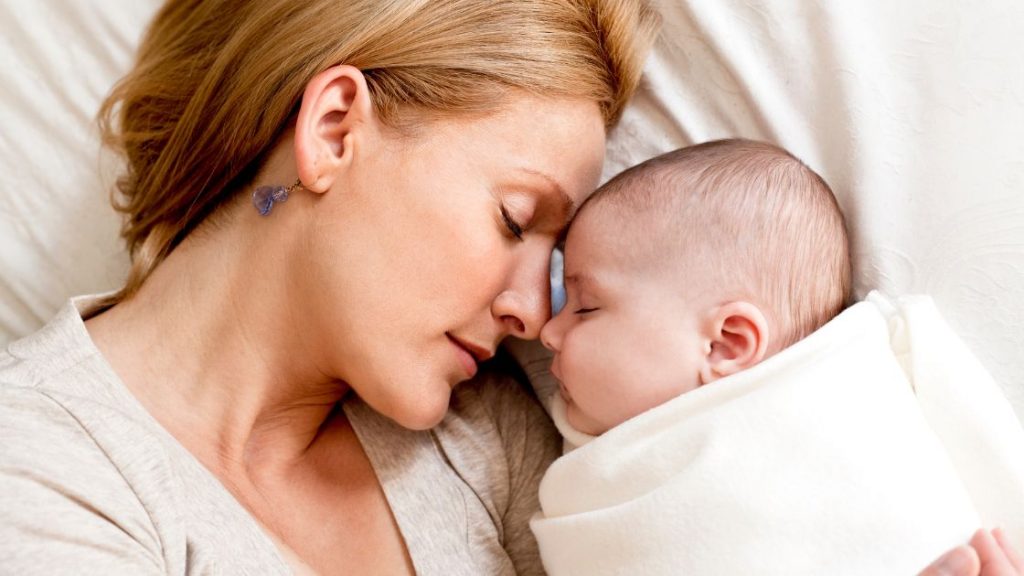Do you feel guilty about sleep training? Do you occasionally hear yourself saying, "I only do it because my child will be better off" or "It's for their good"? These are all signs that you need to re-evaluate your sleep training guilt.
Sleep training guilt can be based on many different emotions, such as feeling like a terrible parent, feeling guilty that they cry longer until they fall asleep at night, or even guilt over not sleeping well themselves.
That's why I wanted to write this article—because as an experienced mom and a child sleep expert, I want to help you stop feeling guilty about sleep training.
What Is Sleep Training?
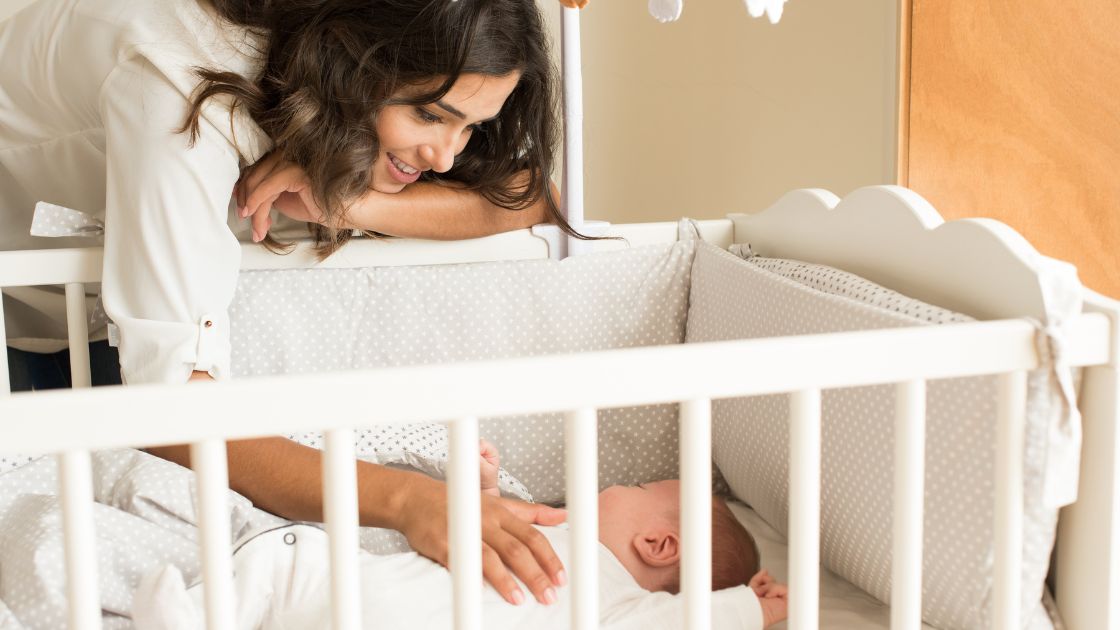
Sleep training is a term that gradually allows your baby to fall asleep independently. It usually happens when your baby is around 6 months old, although some experts say it should start at four months.
Sleep training is a normal part of life for many children. Sleep training isn't about ignoring your baby or pushing them away. Sleep training teaches your baby to self-soothe, calm down, and fall asleep independently.
He'll learn to soothe himself by practicing self-talk and relaxation techniques while lying in his room or another quiet place. By giving them time to learn this, you are giving them more control over their emotions and better sleep quality.
Your child will need to trust you and feel safe in your presence when he practices this new skill. As he learns how to fall asleep on his own, he'll feel more confident about going to sleep at night, which will help him sleep better during the day.
Sleep training can take several weeks or even months, so be patient and consistent as you help your child learn how to fall asleep independently. If you have problems getting your baby to fall asleep or stay asleep, they may need sleep training help.
Common Sleep Training Methods
Sleep training methods can vary, depending on what you think is best for your child. However, there are a few common sleep training methods that most parents use to get their children to fall asleep and stay asleep.
Ferber method
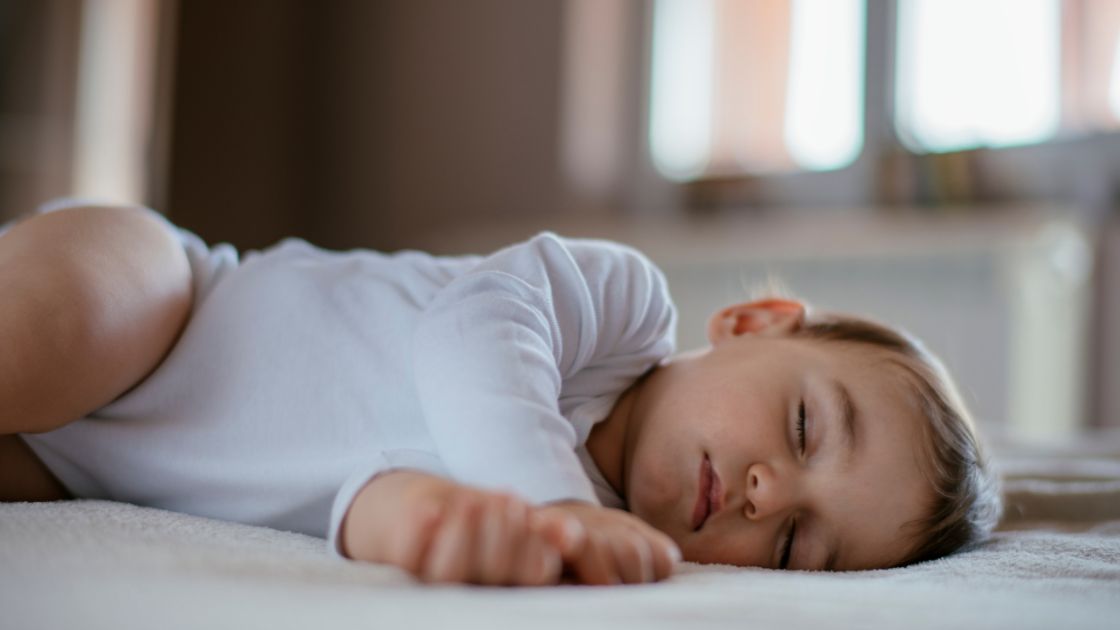
The most common method of sleep training is the Ferber method. The Ferber method works by teaching your child how to put themselves to sleep using a process called "controlled crying."
It is a schedule-based method that requires parents to follow a strict plan for their child's sleep habits and behaviors. This method involves putting your baby to bed after he's had a good feed and leaving him asleep until you come back to check on him.
Pick up, put down
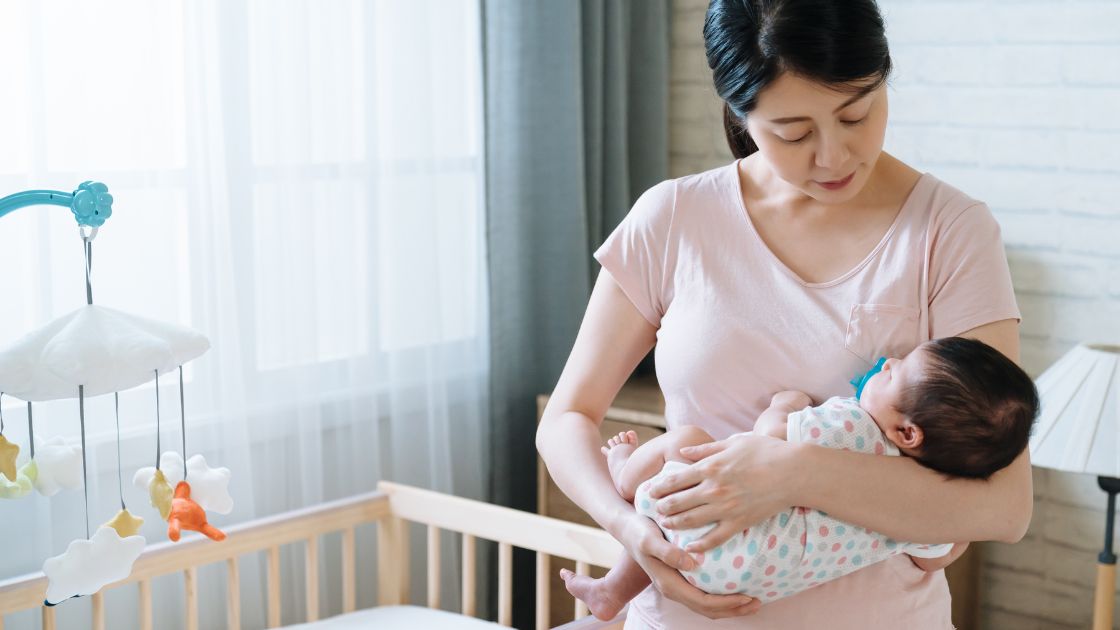
This method is based on the idea that if you put your child down for a nap when they're awake and then pick them up when they're still awake, they'll eventually associate being in bed with being tired—even if it's not very long before the next nap.
In this case, putting your child down for naps when awake is called "pick up" time, and letting them fall asleep again is "put down" time.
Chair method
Once you get them into the chair, you can sit with them or leave them there for several hours until they fall asleep.
Scheduled awakenings
If you're waking your baby to feed him at night, the goal is to gradually lengthen the amount of time between each feeding until he can go through an entire night without being disturbed.
Once your baby has fallen asleep, you should go into his room and check on him every few hours until he wakes up. If he doesn't wake up within 30 minutes of being checked on, it's time for another check!
It requires some trial and error — if your baby wakes up more than once per hour during this period, don't worry about it! Try another night again and see how long it takes before he wakes again.
Cry it out (CIO)
This method involves letting your baby cry for a few minutes after falling asleep, with no pacifier or bedtime routine. You may want to use a pacifier or swaddle blanket during this time if you have concerns about whether your baby can fall asleep on his own.
You should also ensure that there are no toys or other distractions in his room so that he can't get distracted by them while you're gone.
Negative Impacts Of Sleep Training
Sleep training is controversial and can have very negative consequences for your child. The most common negative impact is that your child will be more likely to have difficulty sleeping than they would have otherwise.
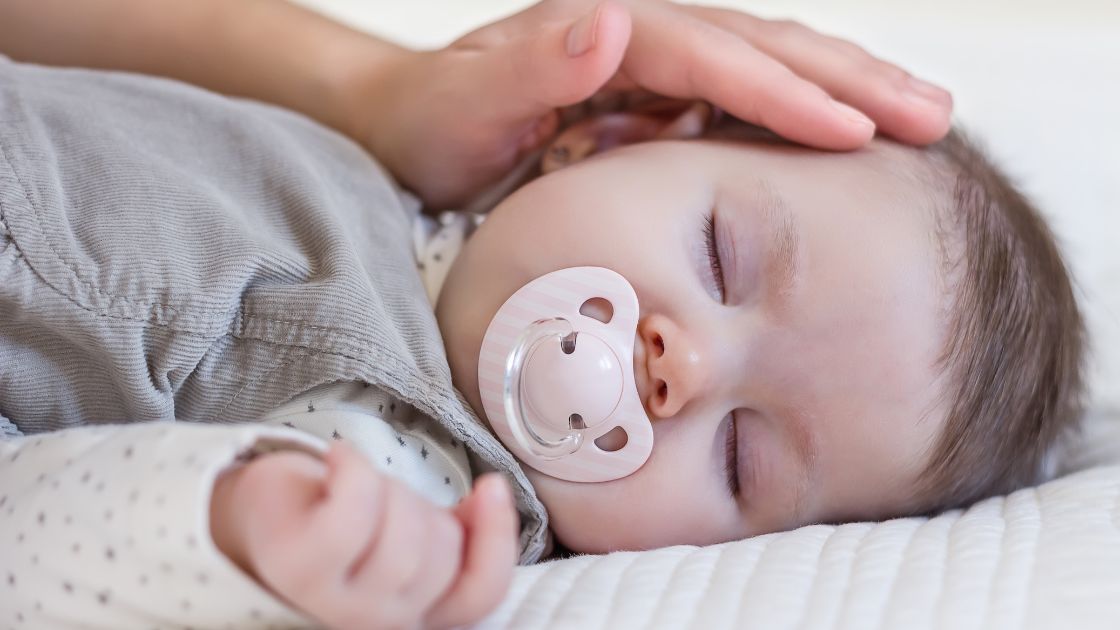
Ferber method
One of the significant negative impacts associated with the Ferber method is that it can lead to dependence on medications or other forms of treatment for insomnia.
The idea behind this sleep training technique is that babies will learn to fall asleep without using medications or other methods if they have adequate time alone each night (usually between 45 minutes and one hour).
However, if a child does not receive enough time alone, they may rely on medication or other treatments to fall asleep at night. It can result in dependence on these medications or treatments, which can cause problems for the child.
Pick up, put down
The first negative impact is that if you do not follow this strict rule, your baby will begin to associate sleeping independently with being punished for doing so. You may be teaching your baby that the period has an end.
Another negative impact is that babies who have been taught this method often become fearful of falling asleep and feel like they have been left alone in their cribs for too long or did something wrong while napping and need to be punished for it.
These babies will often awaken as soon as their parents leave their rooms, which can cause them to become clingy and demanding during the day.
Chair method
One of the significant negative impacts of the method is that it can lead to sleep deprivation. The body needs to recover from being awake and active all day long.
If you put your child through this cycle too often, it will eventually lead to daytime sleepiness, which is unsuitable for their health or learning ability.
If your child gets used to being in the chair every night, they will start sleeping there even when they're not tired or bored. It can lead to serious health issues such as insomnia or depression later on in life!
Scheduled awakenings
A child accustomed to an awake schedule may find it hard to get used to sleeping through the night. It can be disruptive for the child because of difficulty falling asleep and frequent waking up.
The child may also be unable to fall back asleep once they wake up, leading to more crying and sleepless nights.
Cry it out (CIO)
It's an effective method for some children, but it can be hard for parents with sensitive nerves. Some parents use CIO with older kids, but it's not recommended because it can be physically and emotionally damaging to a child of any age who is already crying.
Does Sleep Training Cause Insecure Attachment?
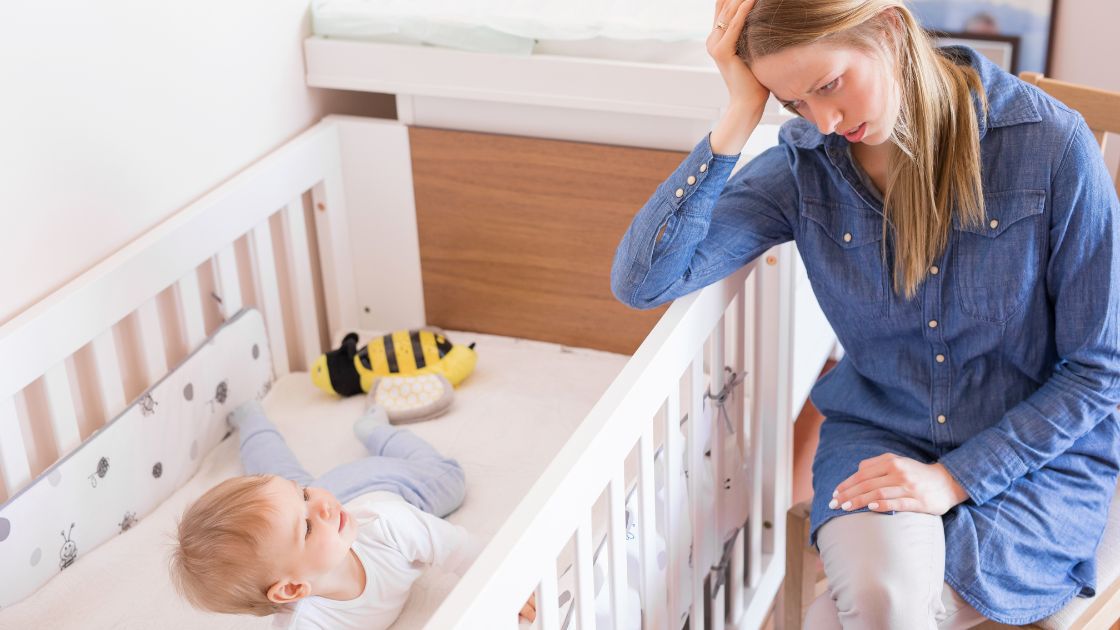
It's common for parents to worry about the long-term effects of sleep training. Some worry that their child will never get enough sleep, while others fear that they will be left with an anxious child who cannot calm down. It is called “sleep training guilt.”
The most common reason parents feel guilty about sleep training is that they believe it will cause their child to have insecure attachments, which is when a baby feels consistently unsupported or unsafe. It can lead to behavioral problems later.
Whether sleep training causes insecure attachment has been a hotly debated topic in parenting circles for years. Some studies have shown that it does, while others have shown no link between insecure attachment and sleep training.
However, I believe sleep training doesn’t cause insecure attachment. Because most sleep training approaches involve responding to a child’s cries at pre-determined intervals, the process doesn’t include leaving a child alone for long periods.
Sleep training teaches your baby how to soothe themselves when upset or scared. It could mean that they learn to self-soothe in other situations, too.
Does Sleep Training Cause Psychological Damage?
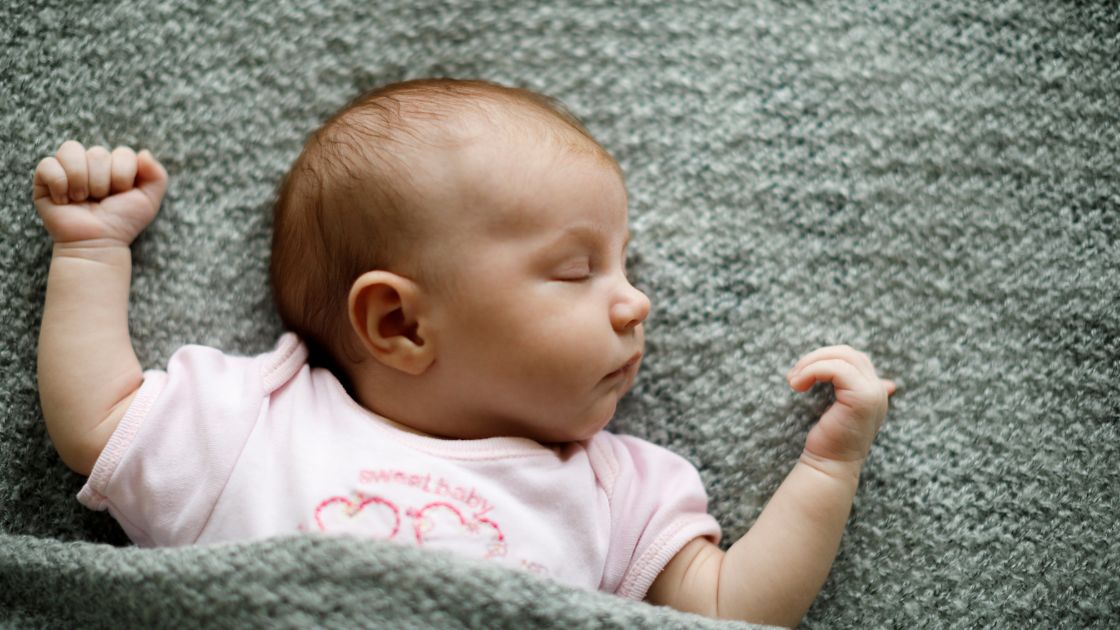
Sleep training is a controversial topic. Some people think it can cause psychological damage to children, while others believe it can be the only way to get the child to stop their bad habits.
Research has not been able to prove either of these claims. There is very little evidence that sleep training causes any long-term harm to children in general. However, there is some evidence that it can lead to behavioral problems for some children.
The most common argument against sleep training is that it might create a fear of bedtime and sleeping alone that will last a lifetime. For this fear to exist, parents must ensure that their child never has any reason to be scared of.
Does Sleep Training Break Trust?
Sleep training is a process, not an event. When you teach your child to fall asleep on his own, he may seem confused, scared, or angry. As he progresses through the training, he will become more confident and understand what you are doing.
It doesn't break trust because you have always been available to him when he needs you. You have been there when he cried at night, when he woke up in the middle of the night and couldn't go back to sleep, or when he had some upset during the day.
Your love for him has been enough for all those things, and now it will be enough for him to learn to fall asleep on his own. He already knows this because he feels safe with you as his parent!

Conclusion
Sometimes you wonder, “Why does sleep training feel wrong?” or “Am I doing right?” I am sure you have asked yourself this question many times. Sleep training is a process that takes time and patience, but it can be gratifying in the end.
There is research on this topic, and it shows that sleep training does not cause harm. As parents, we're hard-wired to want to keep our children safe. That includes protecting them from discomfort; we need to manage our feelings of sleep training guilt.
Sleep training is a kind and loving action, not a form of neglect or abuse. Don't let the guilt consume you, but understand its source and set it aside. You are offering your child a gift by teaching them to sleep well and on their own—a skill they will treasure for years.

